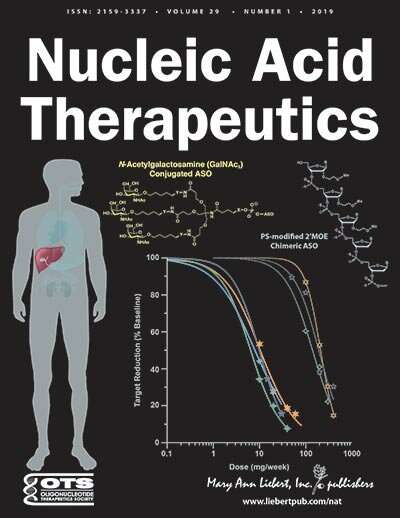Anti-microRNAs are possible new therapeutic target for type 2 diabetes

Researchers have shown that targeted silencing of microRNA-132, which is over-expressed in type 2 diabetes, can result in improved insulin secretion and reduced blood glucose in mice and increased insulin secretion in isolated human islet cells. The new study and promising findings are reported in Nucleic Acid Therapeutics.
"In Vivo Silencing of MicroRNA-132 Reduces Blood Glucose and Improves Insulin Secretion" is the title of the article coauthored by Roel Bijkerk, Johanne Ellenbroek, Yu Wah Au, Maaike Hanegraaf, Eelco de Koning, and Anton Jan van Zonneveld, Leiden University Medical Center, The Netherlands and Jonathan Esguerra and Lena Eliasson, Lund University and SIS Malmö, Malmö, Sweden.
The researchers treated mice systemically, and mouse and human islets with an agonist designed to block the expression of microRNA-132, called antagomir-132. They reported that blood glucose levels remained low in treated mice for three days following the injection of antogamiR-132. The authors encourage additional studies of this new treatment approach in additional animal models of type 2 diabetes.
"This paper provides the first proof-of-principle demonstration that in vivo silencing of microRNA-132 with antagomirs could be used as therapeutic intervention for diabetes, improving insulin secretion and decreasing blood glucose," says Executive Editor Graham C. Parker, Ph.D., The Carman and Ann Adams Department of Pediatrics, Wayne State University School of Medicine, Children's Hospital of Michigan, Detroit, MI.
More information: Roel Bijkerk et al, In Vivo Silencing of MicroRNA-132 Reduces Blood Glucose and Improves Insulin Secretion, Nucleic Acid Therapeutics (2019). DOI: 10.1089/nat.2018.0763



















